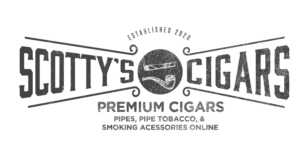We sure heard an awful lot about the umpires during this World Series! I’ve always subscribed to the belief that the best umpires go unnoticed, and I think that proved true here as we saw the games significantly altered by the whimsy of “human error”. Before I start breaking down exactly how poorly I think the balls/strikes in general are called and specifically in this year’s World Series, I would like to state a few things for the record. Umpires are terrific at what they do, especially given the fact that they have a job that is literally impossible. They take outrageous abuse from tens of thousands of people when they are only doing the best job they can, and they get absolutely zero credit when they do anything at all right.
Most people would think that my opinions about baseball lean towards the “new school” side of things, but I feel that I possess a healthy purist-streak in me when it comes to America’s Pastime. For example, when instant replay was being discussed I was staunchly opposed. I remember ranting to my friends about how it was going to turn baseball into football, take forever, most of the calls are right anyways so who cares, tradition, arguments, history, etc etc etc. It only took about half a season until I was fully on board. Instant replay is awesome! Every single call is correct, and I think it improves the game drastically.
Not once since it was fully implemented have I tossed and turned after a game, unable to sleep while I marvel at the buffoonery of another umpire who cost my beloved Red Sox a ballgame. Not once have I made the five-hour round trip to Fenway Park only to have a favorite player not only robbed of success by a mistaken official, but then ejected from the game for letting his emotions get the best of him over it. While I would gladly add some time on to the game to ensure the calls are correct, I personally think that all the time we save not watching managers hoot, hollar, and kick dirt on home plate over horrible mistakes more than makes up for the time we spend in the replay booth. Especially if the person running the park PA has a sense of humor/timing and is crushing it with a classic like “Tell Me Somethin’ Good” or “Double Vision”.
Any of my “purist” concerns about what replay would do to the game are outweighed dozens of times over by how simple and wonderful it is to simply have every call be correct. Sometimes when I see the highlight of Dave Roberts diving into second base back in 2004, I am amazed by how close the play was. Fortunately for all of us, Cowboy Joe West was right on top of the call and got it right, but what if he hadn’t? He certainly wouldn’t have been the first ump to miss a call that close in the playoffs. In 2019, it wouldn’t have been a big deal, quick review, right call, game plays on. However, in those dark days before replay, Tito would have jumped from the dugout and defended his player, maybe to the point of getting ejected, and then the game would have continued on with Roberts in the dugout. The Yankees would have drank the champagne at Fenway Park, gone on to (I assume) get trounced by the Cardinals, and who knows what would have happened from there? People would probably acknowledge that the call was wrong, but would say things like “It’s not like they were going to come back from being down 3-0 anyways.” We might still be talking about the curse of some fat guy who’s name is escaping me at the moment.
Enough about the technologies that have already drastically improved the game, I think I’ve made my point on how not just the course of an at bat or a game, but the actual history of our sport can be swayed by an umpire’s momentary lapse. The ball and strike calls in the 2019 World Series have raised an awful lot of discussion about a digital strike zone and robot umpires. While it is clearly a divisive issue where everyone has a side and it’s hard to get people to cross over, I think more people than ever are on the side of the robo-ump. As you may have already gleaned, I am on the pro-robo-ump side of things. I would like to address one of the main arguments that I hear from the pro-human error side, and show how the reality of the situation is much more severe than it appears on the surface.
For starters, anyone who is anti-robots is inherently someone to me who is in favor of incorrect calls. That’s a tough logical place to start for me, so it’s going to take some pretty solid evidence to convince me that the game is better with bad calls. I caught a segment with Al Leiter on the MLB Network talking about this issue, he was passionate in his defense of a system where many calls are incorrect. His rants touched on a number of talking points, but one he kept returning to is that such a small portion of the pitches are called incorrectly, rendering a change unnecessary. This seems to be a common argument among analysts who are pro-mistakes, and when they present their stats on the surface they appear to have a point. Looking deeper into the numbers, I think the number of pitches missed is vastly understated.
Let’s start with Game 7 between the Astros and the Nationals. As the game was getting underway, Joe Buck mentioned that home plate umpire Jim Wolf was selected for this assignment specifically because out of all the MLB umpires, he rated the best at calling balls and strikes. This is the biggest stage in MLB, and they wanted their best man to represent them. So how did he do? Not so great unfortunately. According to our pals over at Umpire Auditor, he missed the call on 19 pitches. Now some folks will say that is pretty good in a game where 307 pitches were tossed, a measly 6%. How much more accurate do we need to be? Looking deeper, we realize that when the batter swings there is no call to make, so we should probably ignore those pitches. Upon doing this, we learn that 11.1% of the pitches taken were called incorrectly. This sounds worse but still not awful, especially when you consider that it is a bit of an anomaly. It is not only sub-par for Wolf’s personal track record, but below MLB average for all umpires. Maybe the Game 7 pressure got to him a little and threw him off? Regardless of the reason, it still doesn’t sound that bad.
This is where the in-depth analysis seems to stop, deciding how many pitches were taken compared to how many were called incorrectly. I think we need to take it one step further. While admittedly a bit low-tech, I compiled some data of my own. Utilizing the MLB At Bat app and it’s associated pitch location data, I went over the game pitch-by-pitch. I looked up his worst strike call, and his worst ball call. Any pitch taken by a hitter that was closer to home plate than his worst strike, or closer to being a ball than his worst ball, I considered to be a “close pitch”. What I came up with was out of 178 calls that Jim Wolf was responsible for, only 49 pitches were taken in locations that I would consider to be “close”. To me, this means that 129 of his calls were no-brainer calls that every umpire should get right 100% of the time. I think these calls should be categorized with pitches that are swung at and don’t require a call. The remaining 49 pitches are where the umpire is truly earning his money and showing off his skill and discerning eye for the zone. Jim Wolf got 19 of those 49 pitches incorrect. 39%! Think about that for a minute, nearly half the time that the MLB’s very best ball-and-strike umpire had an actual tough call to make, he blew it.
Now I’m not here to drag Jim Wolf through the dirt or say he ruined that game, cost the Astros the series (12 of his 19 mistakes went the Astros way), or is a bad umpire. Quite the opposite. I think he is great, and according to MLB he is the very best when it comes to balls and strikes. My point here is that when it counts the most, even the very best human can’t even achieve a full two-thirds accuracy rate. It’s really hard. While there are many jobs in baseball I like to imagine that I could do well, being the home plate umpire is not one of them. I do not envy those guys, and I hope they are well compensated for the abuse they take from fans, players, and managers.
The problem with the ball and strike calling is much bigger than analysts like Al Leiter are making it out to be. Boston hero Mike Lowell sees both sides, but he says that he wouldn’t even consider implementing it until the technology has improved significantly. Forget “improvements”, what we have now isn’t working. We just missed 39% of the close pitches in Game 7 of the World Series Mike! If we can improve on that at all we need to do it, and right away with the best tech we currently have. The more we study advanced analytics, the clearer our picture of the effect of each individual strike call becomes. We used to think missing the occasional pitch wasn’t a big deal, but now when we see a batter who has an OPS of .980 on 1-0 counts and .535 on 0-1 counts, we can fully appreciate the type of impact even a single missed call can have on an at bat, an inning, a game, a series, or even an entire season.
Is baseball awesome as it is? Absolutely. If it wasn’t possible to get the calls right, I’d be fine rolling with the human umps and letting them do their best. The thing is though, we have the technology. We can get every call right. We saw with instant replay how great it is to have every call perfect, every time. If we are willing to go there with the strike zone, I think the effects will be drastic. Al Leiter says we’ll be taking the drama and theater out of the game. With all due respect to Mr. Leiter’s playing career, he never had to be a regular-ass fan who thinks it sucks when his team gets boned by a terrible call. I will tell you from the experience of being both a young baseball fan and now being an old baseball fan – if you want more young fans to like baseball, don’t show off on TV that we have awesome tech that gets every call right and then explain to them that we don’t use it in live action because their favorite team losing over a blown call creates more drama and theater.
Jim Wolf’s worst call of the night was a strike to Carlos Correa, who was leading off the 8th inning with the Astros down 4-2. Strike three was called on a pitch 4.43 inches inside. It’s pretty obvious to everyone that it was a bad call, but it would only have been ball 3 anyways. Correa very well could have struck out on the very next pitch. Or popped out. It’d be a pretty big stretch to argue that the fate of the series hung on that one single pitch and subsequent terrible call. Before I go, I want to remind you that if Dave Roberts had been called out, it would have been a pretty big stretch to argue that the bad call had cost the Red Sox their first World Championship in 86 years. But it would have.







